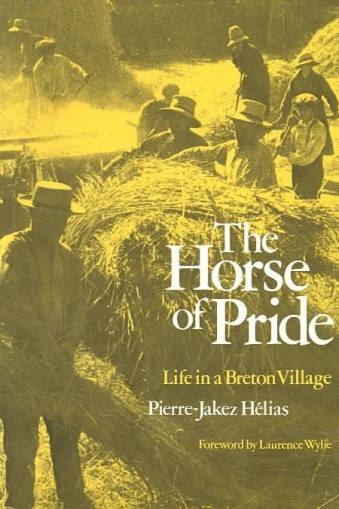Reflections of life in a Breton village post 1914
In an item on the Mannin Branch of the Celtic League facebook page Bernard Moffatt recounts a recent conversation he had with Allen Moore the League's Environment Officer about the book 'The Horse of Pride':
'Allan recalled a Breton book he had heard of at University and indeed he attended a talk given on it in French - no mean feat as a colleague sitting with him had to translate as the talk progressed.
The book was ‘The Horse of Pride’ and details life in a Breton village post 1914 in the South West of the country a beautiful area I’m well familiar with.
The book is perhaps unique in that it chronicles the life of the author in a society where Breton was the first language and when for the villagers French was still ‘a foreign and strange sounding tongue’.
Here’s a section of a review I found on line;
“Here is a book that simultaneously informs and delights. The author, born in 1914 to a landless peasant family living in south western Brittany, has given us an intimate and penetrating look at life in the early decades of this century in an area of France not only provincial (in the Parisian sense), but also ethnically and linguistically distinct from all other parts of the hexagon: the pay bigouden where Hélias grew up and Lower Brittany in general, are, or used to be, Celtic country. Breton was the author’s first language, and the vernacular of the society in which he was raised. His was the last generation of Bretons for whom this was the case, for whom French was a foreign and strange-sounding tongue that one encountered and was expected to master at school. This Hélias did with a vengeance, sailing over one academic hurdle after another, eventually becoming a professeur agrégé de lettres and author of numerous books of prose and (bilingual) poetry. Though highly successful in the French-speaking world, he never lost a keen sense of identification with his roots, with that ethnolinguistic essence that shaped him in early life.
“It is this essence that Hélias wishes to-and, in my view, succeeds in-conveying. The work is an insider’s ethnography, one that captures psychological and social nuances, as well as fine physical details, that outside observers could not be expected to perceive”.
https://www.amazon.co.uk/Horse-Pride-Life-Breton-Village/dp/0300025998
Image: The Horse of Pride book cover







